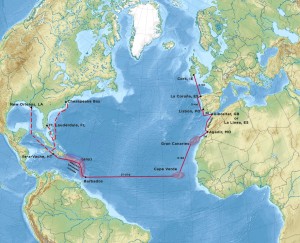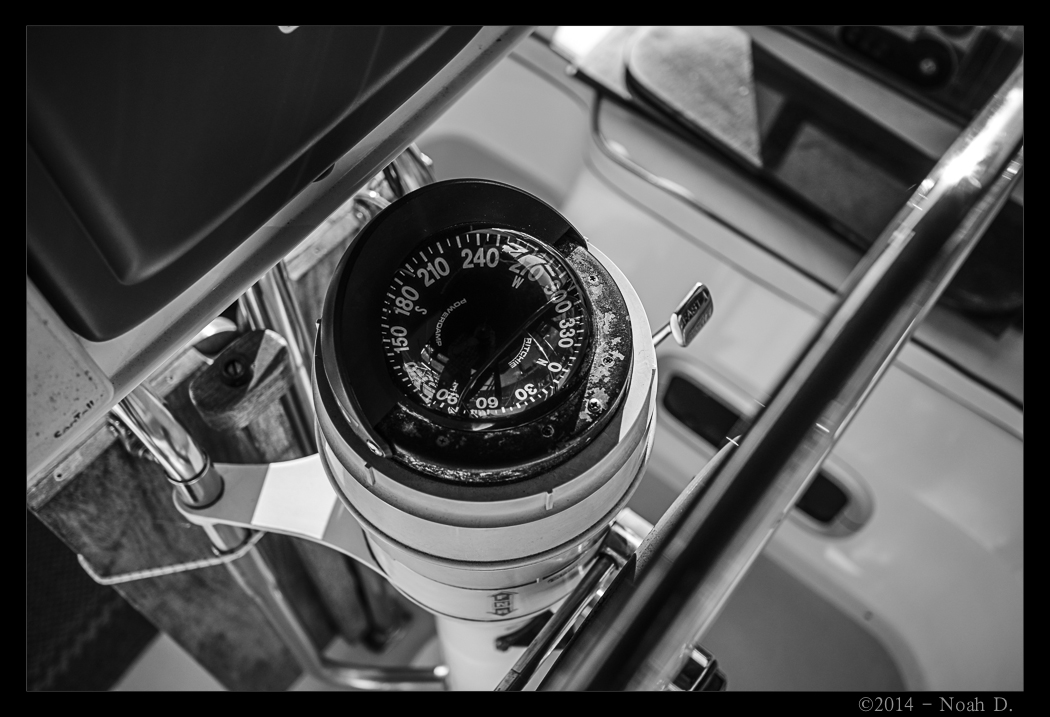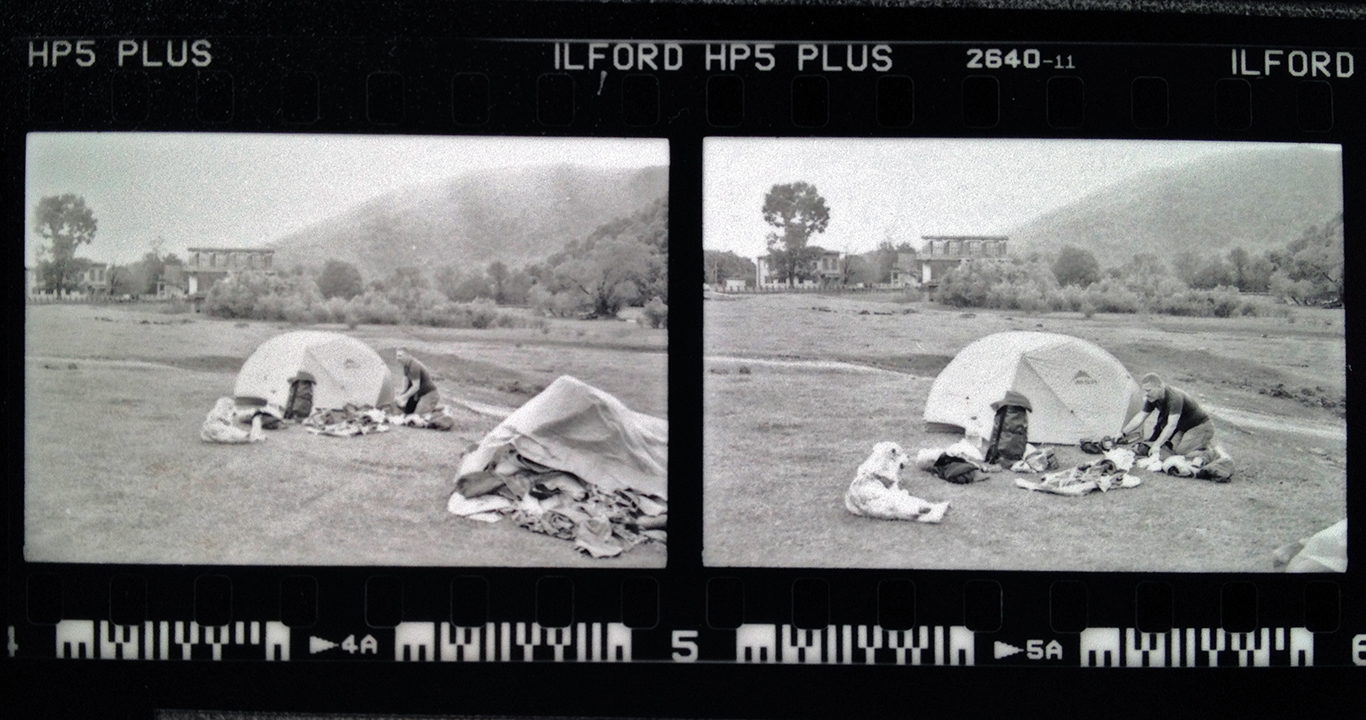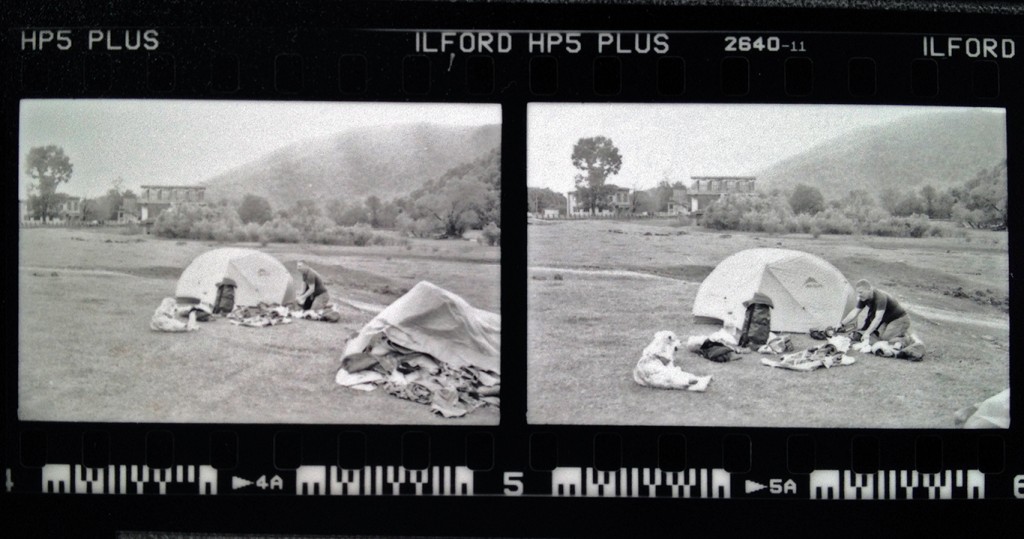By: Noah D.
Now, there is absolutely no reason to take what I am about to say as any sort of legal advice. This is simply a record of my experience with the fact that I am a US citizen living in the UK on a visa, purchasing a boat in the UK, with the intent to keep (and use) the boat in the UK for an extended period of time… and then go sail it around the world. Eventually.
Contrary to what the forums would have you believe, it is not rocket science to purchase a boat overseas. The whole process is merely checking boxes. Is that an oversimplification? Not really, to be honest with you. All that matters to the guy checking all your documents is that you have all the boxes checked.
The problem comes with knowing which boxes to check. And, good lord, are they spread far and wide.
Purchasing a Boat
A boat or yacht, for the most part, does not fall under the typical categories of purchased goods. I say for the most part because in some instances a boat is a “possession”… in some places it is an “asset.” But lets not get bogged down in that quite yet. The thing to know is that purchasing a large(ish) yacht is somewhere between buying a house and buying a car. It is not a house because it is fully mobile, but it is not a car because it is even more mobile than a car and is governed by different laws (mainly related to international conventions). In more ways than not, you may compare a yacht purchase with the purchase of a private aircraft.
A US citizen can purchase a boat in the UK. Or practically anywhere in the world, for that matter. The exchange rate is fickle, but that’s one of the things that any expat will grow accustomed to. I strongly suggest dealing with a reputable broker, like our friends at Burton Waters in Ipswich, UK. A good broker can be your best friend in a complicated issue like this. They’ve done it hundreds of times and will do it a hundred more.
Dealing with a broker feels a little like dealing with a good name-brand car dealership. There should never be any high-pressure sales tactics or shady business going on. But the negotiation process will feel similar. My last car, bought new, cost literally less than a fifth of what Proteus costs, but the whole process seemed familiar and was handled in the same way. Offers are made, counter-offers are discussed after going behind closed doors with the business manager, etcetera etcetera.
The biggest factor with international yacht purchases will be the fact that you will be almost certainly turned down for a mortgage or a loan from a UK agency. As a US citizen on a visa, you’re just too much of a risk. (…unless, of course, you’re making heaps of money.) For all intents and purposes, wherever the money is coming from (personal loan, equity, boat mortgage) you’re going to be paying cash for it as a huge bank transfer. (NOTE: Lending agencies like BoatUS often have a policy in their fine print of only loaning money to boat purchased in the USA. Keep this in mind.)
Otherwise, the process is extremely similar to buying a boat anywhere, even at the boat dealer in your home town. After putting a security deposit down, you sign your “intent to buy,” you get the survey done from a licensed marine surveyor, you do sea trials, you agree to the terms of payment, you make the payment, you finalize the transaction, you get the paperwork and the keys to your new – or new to you – yacht.
Value Added Tax (VAT) and Sales Tax Considerations
The European Union and the European Economic Area have this thing called VAT. It is akin to sales and use taxes in the USA. However, what people have difficulty understanding is that VAT is a transaction tax tied to the importation of the thing (boat, camera, table, etc) into the EU/EEA. Thankfully, the powers that be have made this VAT a one-time thing when it comes to boats. So, with your purchase, you get a little piece of paper – essentially a receipt – that says that the VAT is paid on your boat and, as long as you do not keep it out of the EU for a really long time or resell it outside the EU, the VAT PAID status will stick.
Proteus, though she is a USA-built vessel, had her VAT paid by the previous owner when it was registered in the UK after being kept in Guernsey. (Guernsey, in the Channel Islands, is not technically in the EU.) That means that the boat is already imported, so the fact that the yacht is changing hands to a US citizen is largely irrelevant as far as HM Revenue is concerned.
We will get our comeuppance, however, when we decide to eventually move Proteus to the USA. On arrival – not on documentation or registration – the customs official is likely to have his hand out for us to pay a 1.5% import tax on the purchase value of the boat. That said, we MIGHT have some alleviation with this because the boat was originally built in Florida, but… I’m not going to get my hopes up.
Registering a Boat
Again, contrary to what the internet forums would have you believe, yacht registration mustn’t be so complicated. Nor must it be done with anxiety or lived with with insecurities. In brief, an American citizen cannot legally register a yacht in the UK. People out there will tell you that “As long as you have a UK address, nobody every checks.” Be that as it may, do you really want to gamble that? And there’s another factor…
The most important thing in dealing with registration/documentation is to have everything “look right.” And, by “look right” I do not mean doing anything to deceive anyone. This is what I mean: “A US citizen, with legal authority to live/work in the UK (visa), is on a boat which he legally owns and is legally imported into the European Union (VAT paid) and is legally registered with the US Coast Guard and the state in which he legally resides.”
Perhaps I’m being too by-the-book, but there is just so little to be gained from deceiving anyone: I could not care less about anecdotal evidence on forums. And, when cruising around Europe, I don’t want to be dreading the customs official raising his eyebrow at my helter-skelter registration paperwork.
So, all that said, here is what is legal for an American expat, buying and registering a boat in the UK. When you have all your paperwork (title, bill of sale, etc), document the boat with the USCG and register the boat in your home state with a US address. It takes a few days to get the paperwork through, but it isn’t too hard. You’ll have to claim a name and home port and have these inscribed on the hull. And the USCG will give you a documentation number that must be affixed to the interior of the boat somewhere.
Secondly, registering your boat in your home state shouldn’t be difficult considering the fact that most UK visas are not technically “residency” visas, meaning that you will maintain some legal residency in the USA. Most people stick with their parents for simplicity – and cheapness – sake. Anyways, to register the boat in your state, all you have to do is take the paperwork (bill of sale, title, etc) to the county courthouse and register it just like you would a little fishing boat or a daysailer. You’ll be given a sticker and a registration number. Here’s where it gets different: the sticker goes on the boat in a conspicuous location, but the state registration number is actually NOT LEGAL to put on a USCG documented boat. (I think it is better anyway: keep those ugly-ass numbers off the hull!) The only numbers that go on the boat is those that the USCG gave you for the interior. Mine are next to the nav station, glued on tightly.
As for off-shore registrations or LLC’s? Personally, I’ve never been to the BVI, but I could easily register my boat there. Still, some people swear by them as a practical alternative. I can’t help but feel like it is a tax dodge. I also don’t see it as “simple” because of all the following cost and tax oddities involved. The cost and frustration and legal maneuvering is definitely higher (at least every option I saw was). Is it legal? Yeah, I guess. But you might want to be careful next time you’re bemoaning Big Business CEOs for tax sheltering in the Caymans while your boat is flying the flag of Macau…
Insurance Matters
You guys slay me with all your non-insured boats out there. I tend to be a bit of a free spirit, but it just seems reckless. The problem comes from the fact that a US registered boat won’t be getting insurance from small-time UK insurance agencies anytime soon. I mean, it only makes sense. And not all US insurance agencies are going to insure a boat 5000 miles away. Your choices are limited.
Personally, we are with Yachtline. There are others, but we are more than pleased with them. They’re a major company, and I believe they’re backed by heavy-hitter Lloyd’s of London. And they’re very fair about our cruising range: pretty much the entirety of northern Europe and the British Isles from Brest to the Elbe. We pay less than 1% of the surveyed value of the boat per year for full coverage and liability. Paying a little bit (tiny, in the grand scheme of yacht ownership) a year or risk completely losing a six-figure boat that we love as much as Han Solo loves the Millennium Falcon? I just cannot justify the risk.
Another factor that came in to play was that I lacked my official International Certificate of Competence. Some insurers I talked to was wary of me because of this and a few gave me insultingly high quotes accompanied with severe range restrictions. If you’re an expat with a big boat in international waters, you’re certainly entering into specialty insurance and some insurer’s prices reflect this. I’m working on taking the RYA tests all the way up to Yachtmaster Ocean (even though I’ve been on the water most of my life), so at least that’ll be one more thing that cannot be held against me.
Accessory Registrations
Just like most places in the world, you’ll need your VHF registered with the FCC (for the US) which is accepted in the UK. This is one of those grey areas, too, but keeping all the registrations in the same country just feel a little less fishy to the guy checking your papers. The FCC has a surprisingly straightforward application process (for a government agency that regulates a very complicated thing). You should be able to get your call-sign and MMSI number with minimal suffering.
I mentioned it earlier in my insurance negotiations, but… The thing that is accepted everywhere, and I personally recommend, is all those licenses and yachtmaster classes to put towards your International Certificate of Competence. The RYA itself is a veritable treasure trove of information on all things boat education and, as a member, you have unlimited access to all their resources. There are tons of private (but RYA authorized) training centers in London alone. My personal favorite is CitySailing. Paul, there, has been amazingly helpful and I cannot recommend it enough.
Believe it or not, if you have a state boating license (required to operate a boat in most US states) it is looked upon somewhat favorably by the powers that be internationally. It certainly is not an ICC – not even close – but it is better than nothing!
Conclusion
In the end, it all comes down to the fact that you have a very expensive thing, capable of moving across international borders, and there must be a certain amount of regulation involved. The idea behind having such a ridiculous thing as a passage-making yacht is to actually use it and make some passage. Sailing under a US flag and having everything on board match that US flag will go far in making some little tiny South Pacific island customs agent feel like everything is above board. Have a US citizen ride in on a boat registered who-knows-where with a bunch of other things that don’t match…? Tell me, why shouldn’t you be detained for 4 hours while all the numbers are run through their Windows95 computers on a 56k dialup modem…?
As everything is in the internets, take everything with a few grains of salt (even this blog!), and go out there and figure it out yourself. Don’t take my word for it. Here’s a few links that will help you on your way:
MarineTitle.com – A Reference for US Coast Guard documentation and state registration information
US Coast Guard Documentation Center – information and forms for USCG documentation
HM Revenue & Customs – Sailing your pleasurecraft to and from the UK
US Customs & Border Protection – Importing a boat for personal use into the USA
Small Ships Register – Registering a boat in the UK
International Certificate of Competence – how to apply for an ICC
 Now… …over the past few months, and in an uncharacteristically forward thinking act, Lynn and I have been developing a plan for the next few years. Let’s call it “The Three Year Plan.” This plan included staying in England for Lynn to finish her degree. This would allow us to both get visas that would expire in approximately three years (end of 2017). She would go to school; I would work. We would sail and live on Proteus during this time, save money, and get ready for the moment when we would sail away at the end of our “England Years” and spend a little time (or a lot) doing some serious cruising.
Now… …over the past few months, and in an uncharacteristically forward thinking act, Lynn and I have been developing a plan for the next few years. Let’s call it “The Three Year Plan.” This plan included staying in England for Lynn to finish her degree. This would allow us to both get visas that would expire in approximately three years (end of 2017). She would go to school; I would work. We would sail and live on Proteus during this time, save money, and get ready for the moment when we would sail away at the end of our “England Years” and spend a little time (or a lot) doing some serious cruising.









